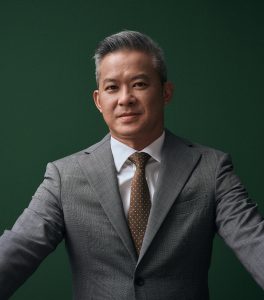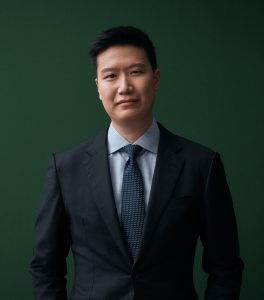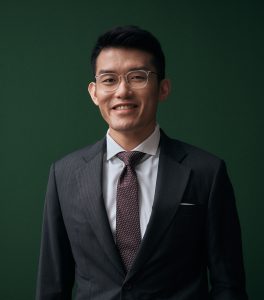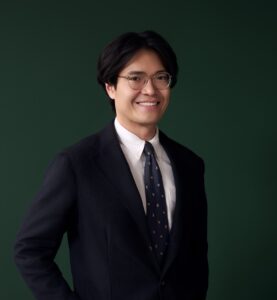
新加坡国际商事法院已确认了一项价值7.3亿美元的资产冻结令,涉及诺和诺德公司(Novo Nordisk A/S)诉KBP生物科学私人有限公司(KBP Biosciences Pte Ltd)及其他公司的案件 2025 SGHC(I) 22,以支持丹麦制药集团诺和诺德向国际仲裁法院(CIA)提起的诉讼,该诉讼涉及一种未获成功的降压药物。Setia Law律师团队成员包括丹尼·翁(Danny Ong)、杰森·茶(Jason Teo)、李金龙(Lee Jin Loong)和埃尔维斯·张(Elvis Zhang),该团队代表原告在原先的单方面申请以及成功抗辩撤销申请中均提供了法律服务。
Uncategorized

Introduction
The Singapore International Commercial Court has upheld a USD730m worldwide freezing injunction in Novo Nordisk A/S v KBP Biosciences Pte Ltd and others [2025] SGHC(I) 22 in support of a ICC claim brought by Danish pharmaceutical group Novo Nordisk over a failed hypertension drug. The Setia Law team comprising Danny Ong, Jason Teo, Lee Jin Loong and Elvis Zhang, acted for the claimant in both the original ex parte application and the successful defence against the set-aside.
This latest judgment of the SICC provides guidance on the substantive requirements for the Singapore Court’s grant of interim freezing relief, and clarifies the Singapore Court’s jurisdiction and discretion to grant interim relief under section 12A of the International Arbitration Act 1994.
The SICC also granted an anti-anti-suit injunction (“AASI“) restraining the Danish proceedings in June, finding that the concurrent action in the Danish Courts was an abuse of the Singapore Court’s processes, and was vexatious and oppressive to Novo. Setia Law also acted for Novo in bringing the application for the AASI, which we understand is the first of its kind that has been reported in a judgment of the Singapore Courts.

Background
Novo alleges that the Defendants fraudulently induced it into purchasing a blood pressure and chronic kidney disease drug, Ocedurenone, by omitting to disclose to Novo’s material facts relating to the efficacy of Ocedurenone. As a result, Novo entered into an asset purchase agreement (the “APA”) with KBP, in which it agreed to purchase Ocedurenone for a total consideration of US$1.3 billion. Novo paid US$700,000,000 to KBP in the first instance, with the remainder held in escrow and / or to only be paid by Novo subject to Ocedurenone obtaining marketing authorization in accordance with the APA.
Soon after the purchase concluded, Novo discovered that Ocedurenone was ineffective. Its subsequent investigations revealed that the Defendants had all along been in possession of, but failed to disclose, material information that would have revealed to Novo the inefficacy of Ocedurenone and thus caused it to walk away from the deal if it had known such information.
As the APA contains an arbitration agreement (which also obligates Novo to also commence arbitration against KBP’s officers, if it wished to sue such persons), Novo brought the ex parte application for a freezing injunction in support of a pending ICC arbitration to be commenced against the Defendants (which has since been commenced). This freezing injunction was successfully granted, and the Defendants subsequently applied to set it aside.

The SICC’s findings
The SICC found that:
- Novo has a good arguable case on the merits of its underlying claims against the Defendants;
- Novo has shown that there is a real risk of dissipation on the part of the Defendants;
- Novo has not breached its duty of full and frank disclosure in making the ex parte application; and
- The SICC has the jurisdiction to, and rightly exercised its discretion to, grant interim freezing relief in support of foreign-seated arbitration under section 12A of the IAA.
Real risk of dissipation
In finding that there was a real risk of dissipation of assets by the defendants, the Court gave guidance on what constituted “unjustified dealings”, and also clarified (as per Bouvier) that the dishonesty alleged in respect of the underlying claim could have a real and material bearing on the risk of dissipation depending on the nature of the dishonesty being alleged. In this case, the SICC found that there is “cogent evidence” that Dr Huang’s dishonesty in both (a) deliberately withholding material information from Novo and (b) the speedy movement of sale proceeds out of KBP, bore upon the real risk of dissipation.
Jurisdiction and discretion to grant interim relief under the IAA
In this case, the SICC found that the arbitral tribunal (or the emergency arbitrator) would not have been able to act effectively as it could not have granted similar interim relief against Dr Huang (who is not a signatory to the parties’ arbitration agreement), while the International Arbitration Act 1994 had expressly vested the Singapore Court with the power to do so. In addition, the tribunal or emergency arbitrator could not have granted ex parte relief, which meant that any applications to them came with the inherent risk of tipping off.
On the basis of this inherent risk of tipping off and further dissipation, the SICC also found that Novo’s application was sufficiently urgent to invoke curial assistance from the Singapore Court to grant ex parte interim relief.
It was also not inappropriate for the SICC to exercise its discretion to grant interim freezing relief in this case. The language of the arbitration agreement did not preclude parties from applying to the Singapore court for such relief. Furthermore, even if Novo could not have obtained a freezing order in the New York courts applying New York law (being the lex arbitri and substantive governing law of the underlying arbitration), this did not mean that it was inappropriate for the SICC to grant the freezing order. In this regard, the SICC found that there was evidence that the New York courts did not consider freezing injunctions granted by foreign courts to be objectionable.
Anti-anti-suit injunction
On top of this, the SICC’s judgment also records that it granted an AASI mandating that the defendants withdraw their application in the Danish courts to restrain Novo from applying, enforcing or otherwise relying on the Singapore freezing order. This AASI was granted on the basis that the concurrent action in the Danish Courts was an abuse of the Singapore Court’s processes, and was vexatious and oppressive to Novo. Setia Law also acted for Novo in bringing the application for the AASI, which we understand is the first of its kind that has been reported in a judgment of the Singapore Courts.

Conclusion
This judgment shows that the Singapore Courts are, under the auspices of the IAA, prepared to provide robust interim relief in support of international arbitral proceedings even if they are not seated in Singapore. It also clarifies how the Singapore Courts are likely to approach the relevance of allegations and / or evidence of dishonesty towards the finding of a real risk of dissipation.
Access the full judgment here.
Team
 Danny Ong
Danny Ong
Managing Director
danny.ong@setialaw.com
 Jason Teo
Jason Teo
Associate Director
jason.teo@setialaw.com
 Lee Jin Loong
Lee Jin Loong
Senior Associate
jin.loong.lee@setialaw.com
 Elvis Zhang
Elvis Zhang
Associate
elvis.zhang@setialaw.com
